

Become a catalyst of good work and unite with others committed to making our organisations a little better!
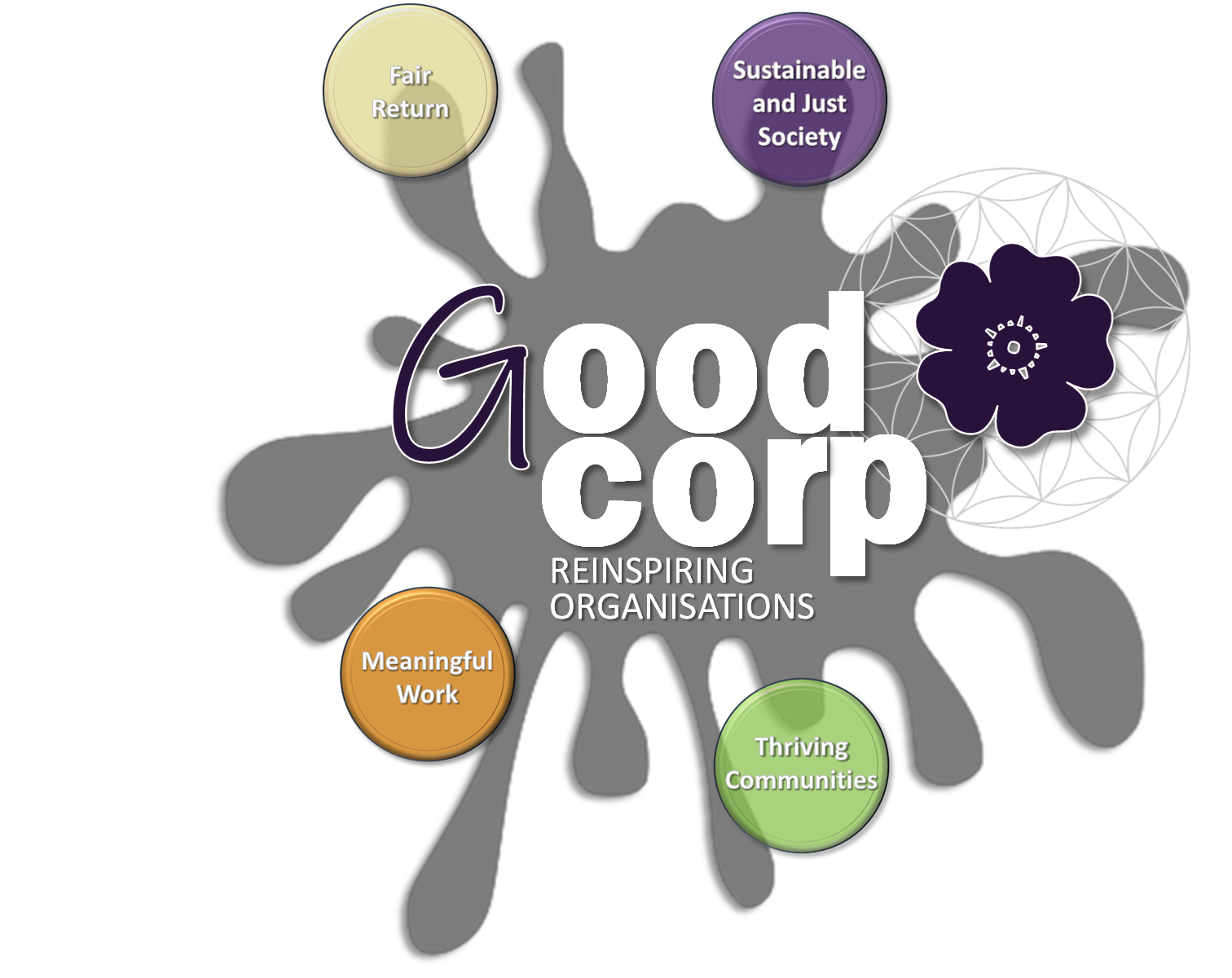
identification
Good Business Rankings: Little Fire, Lots of Smoke!
Before embarking on the journey, please read our piece about business rankings, awards and certificates to familiarise yourself with the challenge.
are business rankings (any) good? (Click on the icon for pdf)
Milton Friedman's one-goal dictate - Profit! - leads to growing "collateral damage". To this day, inhumane conditions are being toiled in countries of the global South to drive down costs in the supply chain. The Federal Environment Agency reports that about half of the companies in the German Stock Index do not sufficiently integrate the risks of climate change into their corporate strategy.Also, the pay of many workers still does not meet a minimum wage that enables cultural and social participation.
Thus, the call to rethink organisations is growing louder. Companies should be aware of their social responsibility and act accordingly. In the meantime, there are numerous rankings, awards and certificates that select socially responsible and "good" companies. However, this rating industry is confusing. Is all this merely window dressing and "good washing"? To find out, we have systematically analysed the rating approaches. The result: what "good" means from the perspective of the rating industry and how it is measured is unfortunately not always good.
Jump to
Why is the world better off because this organisation is in it?
Learning Journey
Core Concepts (click icons to jump to discovery)
Introduction to Theories of Ethics (4)
What is the ethical basis for life and work? How can the main theories of ethics and politics help us to define the good life and the good society?
Alternative Theories for a Responsible Economy (and Responsible Business) (5)
What defines a good economy, and what responsibilities should businesses have toward external stakeholders and society as a whole in such an economy?
What are the prerequisites for an organization to obtain a "license to operate"?
The Challenge to Measure Responsible Business (6)
What are the attempts to define and measure responsibility and sustainability? What are the problems with various existing frameworks?
What IS genuine "value"? What value should organisations create, and how can we measure it?
Based on all of the above, note down in your journal some personal reflections. What is your personal view?
Corporate Social Responsibility (CSR) Has Not Worked (3)
Critiques of capitalism and neoliberalism are not new. Why is business failing to address the problems?
Our Perspective On Core Concepts
"What really matters is that humans have no purpose. What we have is a role in an ecosystem. Being able to keep that ecosystem healthy means submitting ourselves to a whole life of being nested in a world that we affect and that affects us and our ability to play our role - not to figure out what we want." ― Carol Sanford
Identifying The Transformation Objectives: Leaders Cannot Remain Morally Mute
As we delved deeper into our exploration, it became evident that many popular alternatives to capitalism fall short of addressing the core issues. Ensnared within a neoliberal ideology and driven by a utilitarian perspective, these alternatives often fail to ask the fundamental questions: What is the true existential purpose of our economy, and what responsibilities does it bear?
We firmly believe that the economy is an integral part of society, and as such, its purpose must stem from the broader purpose of our society. In simpler terms, the economy doesn't operate in a moral vacuum, independently governed by its own set of rules. No matter how passionately some economic theorists may attempt to convince us otherwise, the legitimacy of the economy is intricately tied to its positive impact on society. With this conviction, we began an even more foundational inquiry: we asked what it truly means to lead a fulfilling life, and from that standpoint, how to foster a just and prosperous society. Through this lens, we aimed to redefine the roles of both the economy as a whole and each individual organization within it.
A word of warning: Undoubtedly, the terrain we're now going to navigate is intricate and not for the fainthearted! Some of our inquiries have been a source of contemplation for philosophers for over 2,500 years, without yielding very clear solutions. Moreover, our questions transcend multiple disciplines, encompassing philosophy, psychology, management science, economics, and extending into fields such as sociology, anthropology, and history. Hence, more than furnishing definitive answers we will offer you a few intriguing insights that we've unearthed on our journey, while seeking to kindle your own curiosity to delve deeper into the wealth of perspectives in the discovery section below.
Click on each concept heading to learn more...
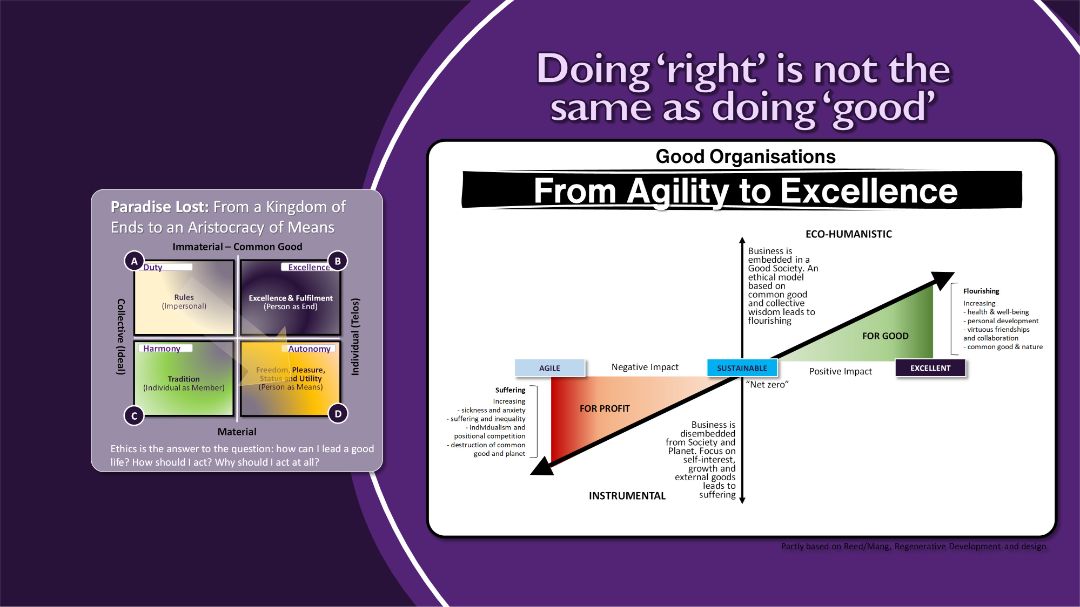
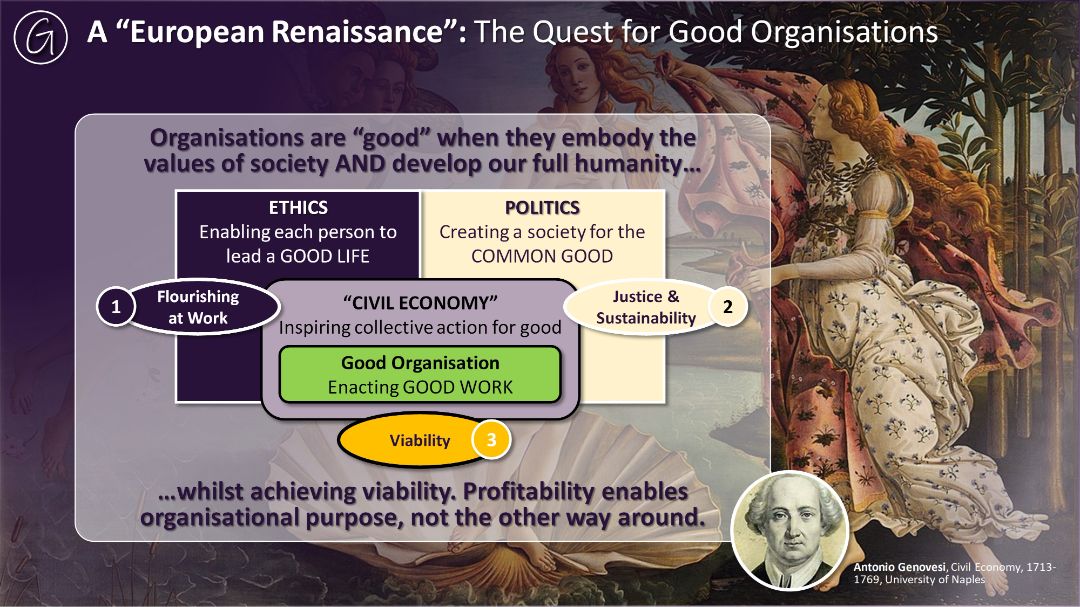
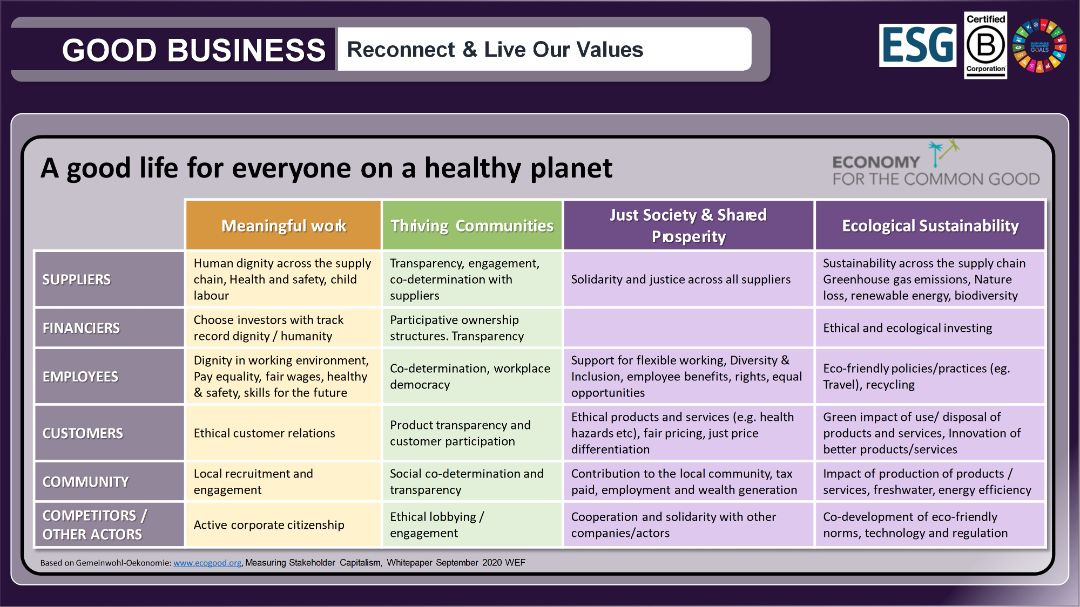
Below you can also find a few blog posts that dive into our evolving thoughts around these concepts
““Efficiency turns out to mean measurable efficiency. Efficiency comes down to what you can measure and exploit. You can't measure love. You can't measure communityship. But, yeah, you can measure profit.” .” ― Henry Mintzberg
Discover New Puzzle Pieces of Wisdom On A Search For Eureka Moments!
Materials marked in dark purple are foundational. Those flagged in light purple are for in-depth exploration.
Core Concept 4: Ethical Theories
Core Concept 4: Introduction to Ethical Theories
Please ponder: What is the ethical basis for life and work? How can the main theories of ethics and politics help us to define the good life and the good society?
2) Review the most important Western modernist ethical theories, i.e. utilitarianism, duty, virtue ethics, care ethics and contract theories
3) Examine how virtue ethics envisages the cultivation of a good character to lead a good life
Core Concept 5: Alternative Theories for a Responsible Economy (& Responsible Business)
Core Concept 5: Alternative Theories for a Good Economy (and Responsible Business)
Please reflect: What are the most important theories that seek to improve Capitalism? How is a "good economy" defined by these different models? What responsibilities should businesses have toward external stakeholders and society as a whole?
1) What is political philosophy and how do the concepts of common good and justice matter for legitimate governance?
2) What is Political Economics? How do politics and economics link?
3) What are the alternative theories for a good economy? Can you discern their ethical and ideological foundations?
4) What is the role of responsible business in each of these alternatives?
Core Concept 6: The Challenge to Measure Responsible Business
Core Concept 6: The Challenge to Measure Responsible Business
Please reflect: What are the attempts to define and measure responsibility and sustainability? What are the problems with various existing frameworks?
1) How is social and economic impact of business measured? What are the better known measures and evaluative concepts?
2) What lessons can we learn from the frameworks Triple Bottom Line, ESG or B-Corps?
3) On that basis, how can we design a better way to qualify and select good organizations?

Ancient Philosophy: A Very Short Introduction

The Great Philosophers: An Introduction to Western Philosophy

Think: A Compelling Introduction to Philosophy
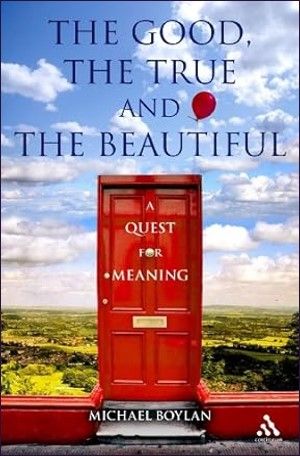
The Good, the True and the Beautiful: A Quest for Meaning

Utilitarianism

Practical Ethics

Ethics: History, Theory, and Contemporary Issues
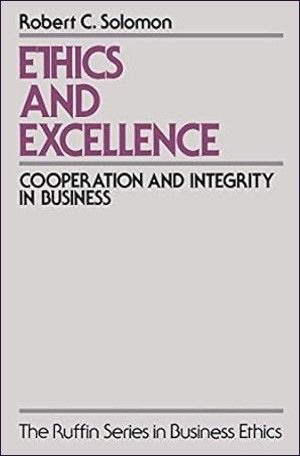
Ethics and Excellence: Cooperation and Integrity in Business

A Short History of Ethics: A History of Moral Philosophy from the Homeric Age to the Twentieth Century
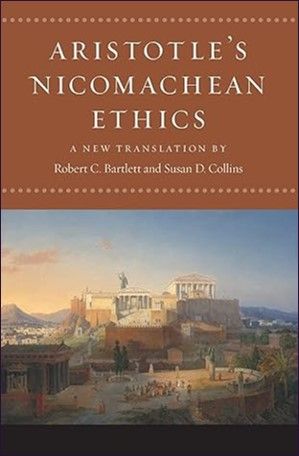
Aristotle's Nicomachean Ethics

After Virtue: A Study in Moral Theory

Existential Flourishing: A Phenomenology of the Virtues

Virtues and Vices: And Other Essays in Moral Philosophy

Metaphysics as a Guide to Morals

The Oxford Handbook of Virtue

The Republic

Leviathan by Thomas Hobbes

The Social Contract

Rights of Man, Common Sense, and Other Political Writings

Justice: What's the Right Thing to Do?
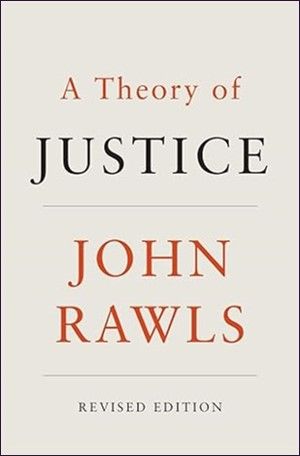
A Theory of Justice: Revised Edition

Political Ideologies: An Introduction

An Introduction to Political Philosophy
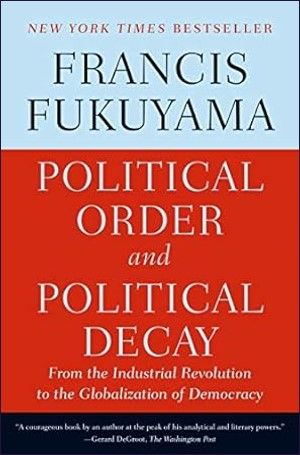
Political Order and Political Decay: From the Industrial Revolution to the Globalization of Democracy

A History of Economics: The Past as the Present

An Inquiry into the Nature and Causes of the Wealth of Nations

Das Kapital"

The Road to Serfdom
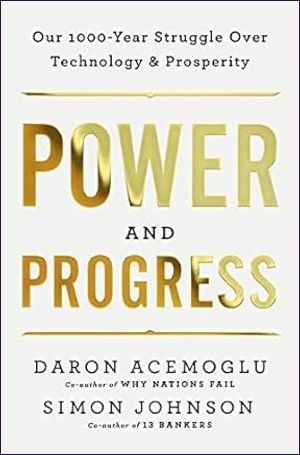
Power and Progress: Our Thousand-Year Struggle Over Technology and Prosperity
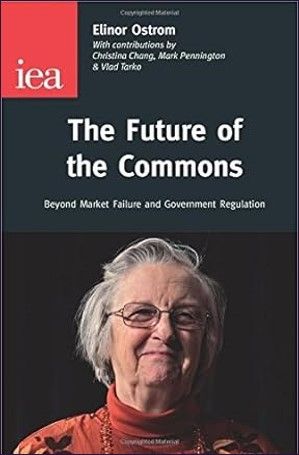
The Future of the Commons: Beyond Market Failure & Government Regulations
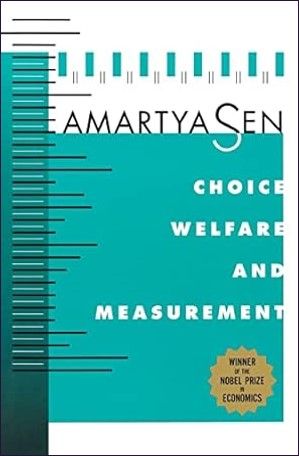
Choice, Welfare and Measurement
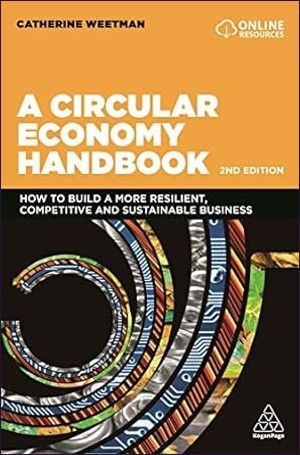
A Circular Economy Handbook: How to Build a More Resilient, Competitive and Sustainable Business
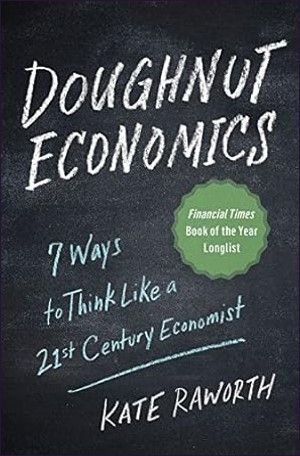
Doughnut Economics: Seven Ways to Think Like a 21st-Century Economist
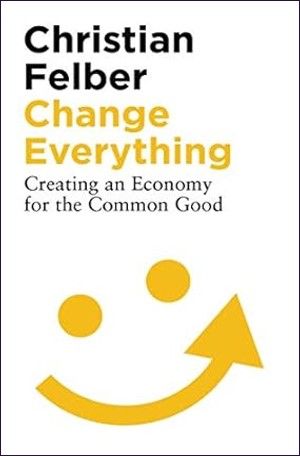
Change Everything: Creating an Economy for the Common Good
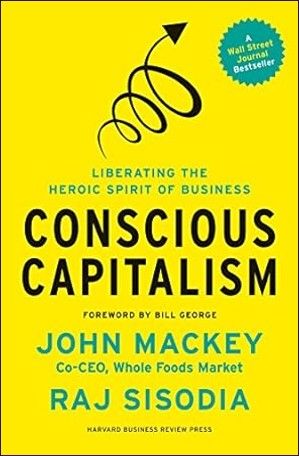
Conscious Capitalism, With a New Preface by the Authors: Liberating the Heroic Spirit of Business
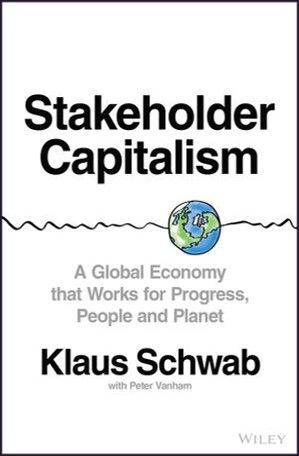
Stakeholder Capitalism: A Global Economy that Works for Progress, People and Planet

Civil Economy: Another Idea of the Market
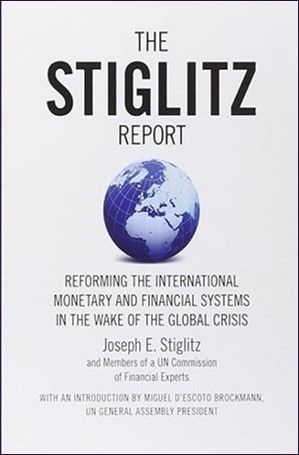
The Stiglitz Report: Reforming the International Monetary and Financial Systems in the Wake of the Global Crisis

The Integrated Reporting Movement: Meaning, Momentum, Motives, and Materiality
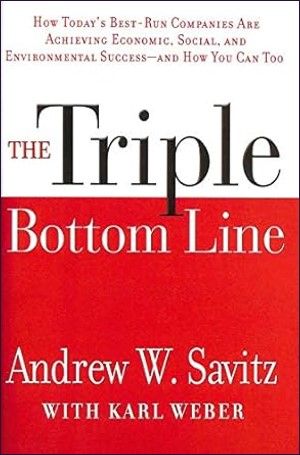
The Triple Bottom Line
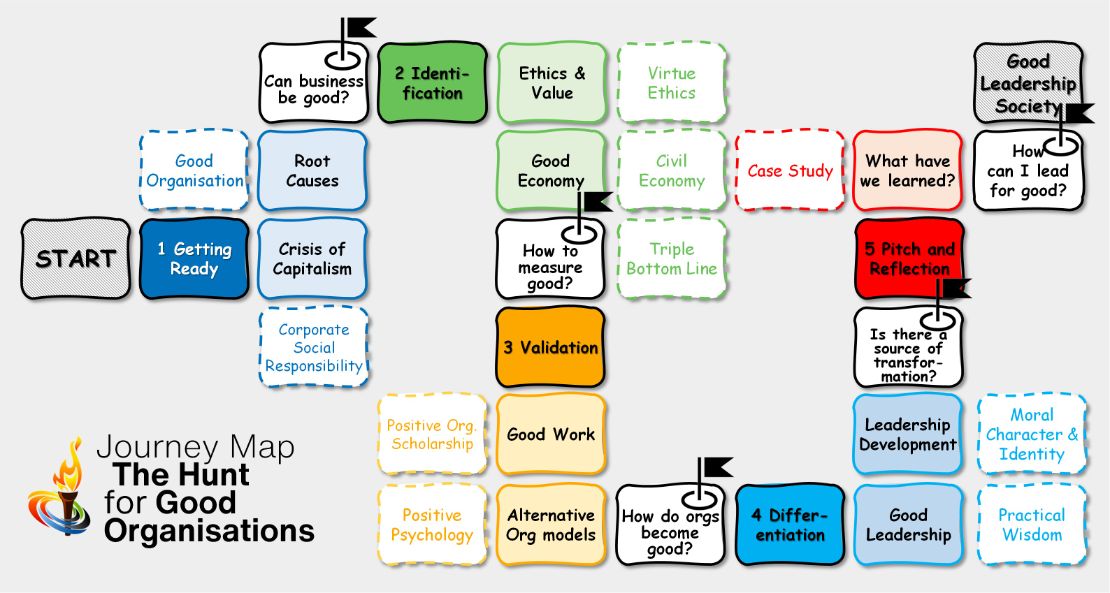
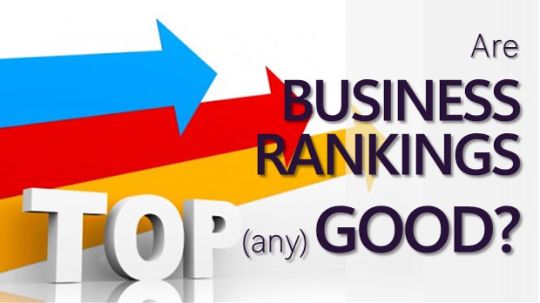
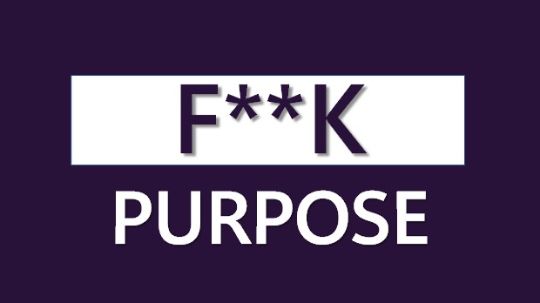


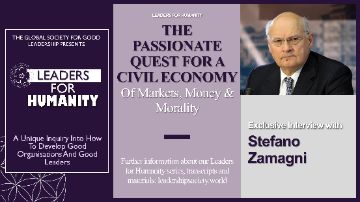
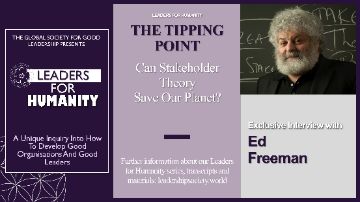
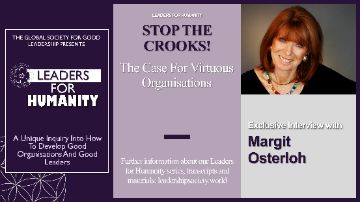

 .
.